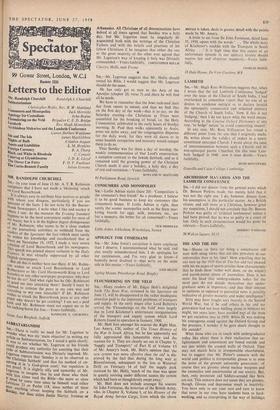SIR,—Mr. Legerton suggests that Mr. Hollis should reread his Bible.
I would suggest that Mr. Legerton should do the same.
He has only got to turn to the Acts of the Apostles (chapter 20, verse 7) and _there he will find all he needs.
We have to remember that the Jews reckoned their day from sunset to sunset, and thus we find that on the first day of the week—that is to say, on the Saturday evening—the Christians at Troas were assembled for the breaking of bread, i.e. the Holy Communion, celebrated in the early hours of Sunday morning. St. Paul then walks apparently to Asstis, some ten miles away, and the congregation disperses for the daily work, for they were all slaves or in some humble occupation and necessity would compel them to do so.
Thus Sunday was for them a day of worship, the weekly commemoration of Our Lord's resurrection, a complete contrast to the Jewish Sabbath, and so it remained until the growing power of the Christian Church made it also a holiday, a holy day, a day of rest and recreation.—Yours faithfully,


































 Previous page
Previous page